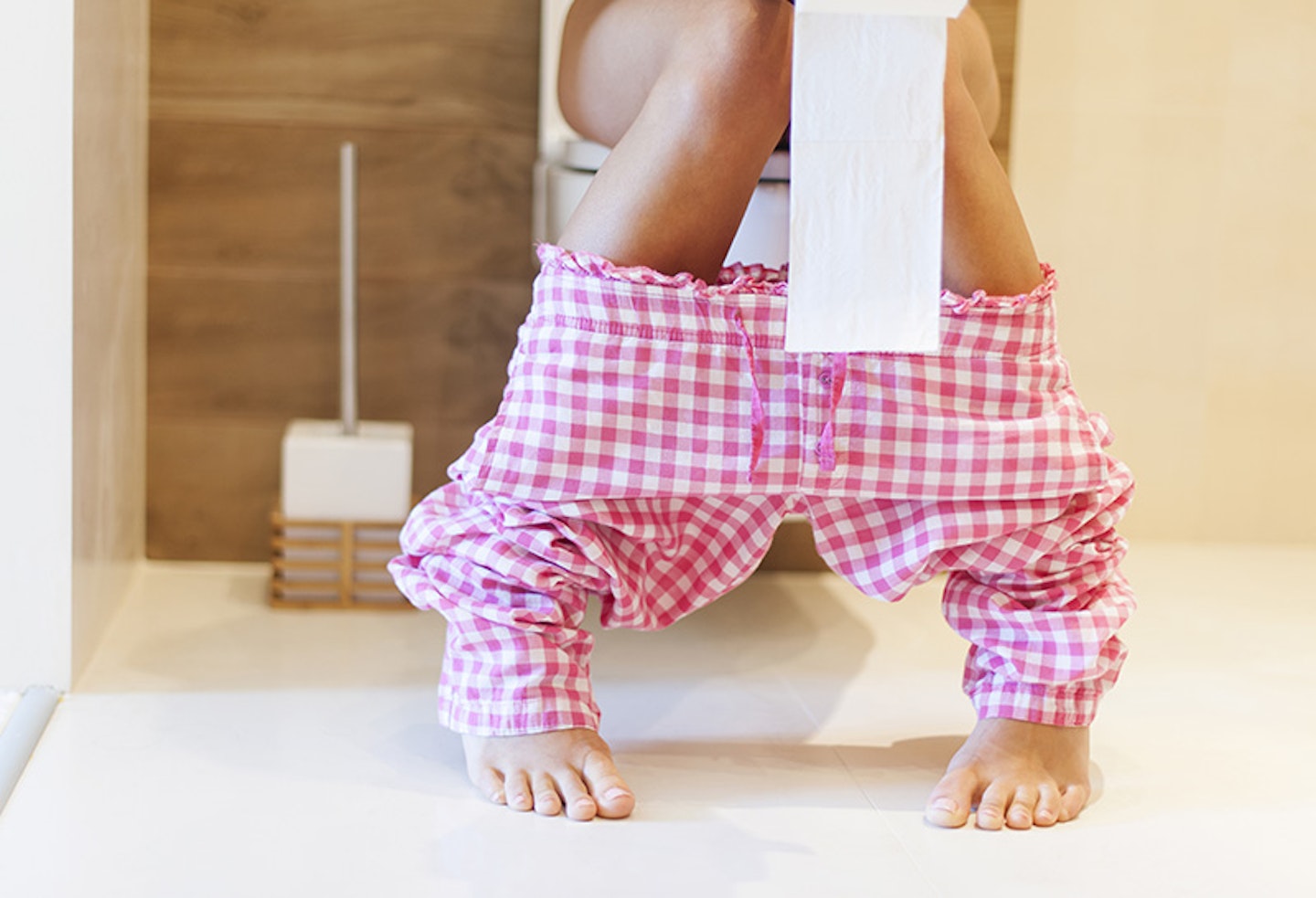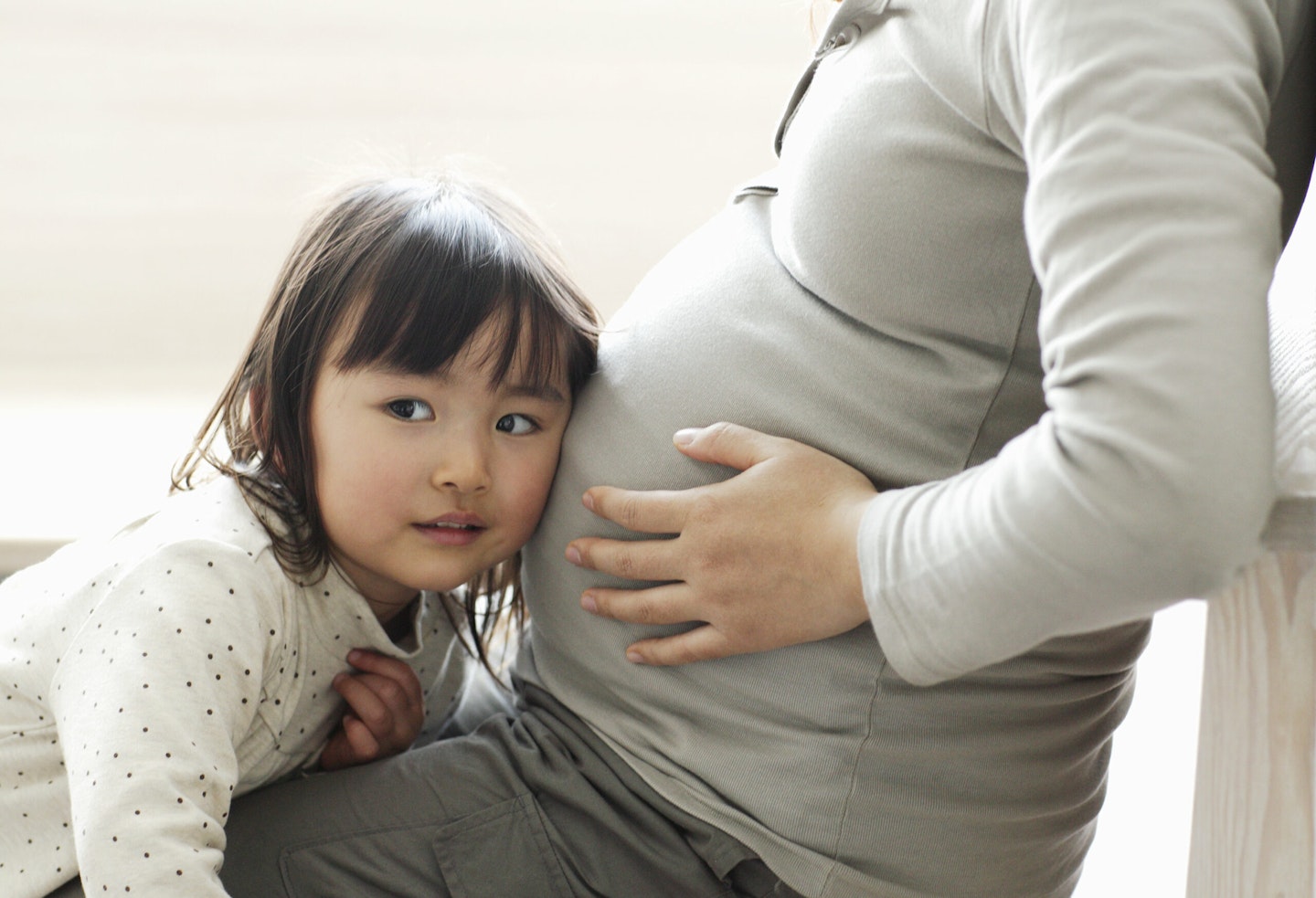You've reached the 28 weeks pregnant mark (which works out at almost 7 months pregnant) and things are starting to get very exciting for you and your baby!
At 28 weeks pregnant, you can start building a bond with your baby through talking and singing, and you’ll have certain tests to check your health at this point in the pregnancy.
How big is my baby at 28 weeks?
Your baby’s is as big as a head of lettuce this week, at two and a half pounds and nearly 15 inches long from top to toe. She’s also getting ready to meet the outside world, settling into the proper position for birth with her head facing downwards.
What’s my baby doing at 28 weeks?
You haven’t met your baby yet, but it’s not too early for you and your partner to start bonding with her. Whether you’re singing along to the radio, gossiping with friends or just chatting away to yourself, your baby will be able to hear it.
In fact, the sound of your voice will help to calm her – studies have shown that your baby’s heart rate actually drops when she hears your voice. Bless! Encourage your partner to talk to your bump too – it’s a great way to start fostering a bond between them.

Your baby’s eyes are also more developed than ever: she now can not only blink her eyes but also enjoy fluttering the lashes that have recently grown. Her eyesight is so good she may even be able to see light filtering in through your womb.
She’s also started dreaming of you: brain wave activity measured in foetuses shows that babies in the womb go through different sleep cycles, including the REM phase, when dreaming occurs.
Common symptoms to look out for at 28 weeks pregnant:
 1 of 7
1 of 71) Stuffy nose
1. If you feel like you have a cold, this may be due to the high levels of pregnancy hormones increasing blood flow to the mucous membranes in your nose, and causing them to swell. Nasal strips can help open your nostrils and make it easier to breathe.
 2 of 7
2 of 72) Faintness
2. Your burgeoning bump may be leading you to feel a little light-headed, as increased pressure is put on your blood vessels and reduces blood flow to the brain. If you’re feeling dizzy, make sure you keep your blood circulating well by drinking lots of water.
 3 of 7
3 of 73) Sciatica
3. You might also be experiencing tingling leg pain, also known as sciatica. As your baby moves around to get ready for birth, her head may decide to rest on the sciatic nerve in your lower spine, leading to some less than pleasant sensations for you: shooting pain, tingling or numbness in your buttocks and the backs of your legs. While the feeling can pass if your baby moves positions, it can also stay with you until childbirth. Try resting, warm baths, stretches or a heating pad to help with the pain.
 4 of 7
4 of 74) Constipation
4. Pregnancy hormones such as relaxin are busy loosening up the ligaments in your body for when your baby arrives. Another unfortunate effect is that they also relax the muscles around the intestines, leaving you with sluggish digestion. This can lead to – oh joy! – constipation. Luckily, there are some simple dietary tweaks you can make to speed things up: include more fibre-rich food in your diet such as wholemeal bread, beans and pulses and porridge oats. Drink plenty of fluids, and gentle exercise such as swimming or walking can help to get things moving, too.
 5 of 7
5 of 75) Trouble sleeping
5. Hormones, nerves and your burgeoning bump are all factors that will cause you strife and keep you up at night!
 6 of 7
6 of 76) Leaking breasts
6. At this stage, your breasts may have started producing colostrum which is a yellow substance. This is perfectly normal - some might suffer it and some might be lucky and avoid it!
 7 of 7
7 of 77) Shortness of breath
7. As your baby's growth continues to crowd your lungs it makes it harder to catch your breath. Take it easy and stay as relaxed as your possibly can.
What is my body doing at 28 weeks?
Hooray - you’ve made it this far and you’re now in your third and final trimester! You’ll start visiting your doctor or midwife more than ever at this stage, every two weeks, changing to every week once you get to 36 weeks pregnant (it’ll come sooner than you think!).
There will be plenty of tests to do now, from blood tests for HIV and syphilis to tests for glucose tolerance.

28 weeks pregnant is how many months?
Keeping track of how many weeks and months pregnant you are can be tough! When you reach 28 weeks pregnant, you will be in your 7th month of pregnancy, and just about to enter your third trimester.
What to do this week:
At around this point in your pregnancy, your midwife will check your blood count to make sure you’re not anaemic and prescribe you iron supplements if you are.
According to Emiliana Hall, the founder of The Mindful Birth Group®: "You’ll also be checked for gestational diabetes with a glucose tolerance test. You’ll be asked to fast the night before and at your appointment, your midwife will take a urine sample to get a fasting baseline level. You’ll then be given a glucose load – usually a thick, sugary drink – and be tested again – either two hours later or with blood prick tests every half hour. This is to see how your body deals with glucose (the sugar you drank). In a nutshell, if your body can’t produce insulin, which is needed to help reduce glucose to normal levels, it could be a sign of gestational diabetes, says Emiliana.
At 28 weeks pregnant, you're entering the third trimester, the final stretch of your pregnancy journey. This period is marked by significant growth and development for your baby, as well as some physical and emotional changes for you, says Emilana.
Here’s what you need to know and what you can expect at 28 weeks:
Baby's Development at 28 Weeks
By 28 weeks, your baby weighs around 1 kilogram (2.2 pounds) and measures approximately 38 centimetres (15 inches) from head to toe. Here are some key developmental milestones:
-
Lungs and Breathing: Your baby's lungs are maturing, and they are starting to practice breathing movements, inhaling and exhaling small amounts of amniotic fluid. This practice is crucial for lung development.
-
Brain Growth: The brain is developing rapidly, increasing in complexity and size. Neural connections are forming, setting the stage for future learning and cognitive functions.
-
Eyes and Vision: Your baby's eyes can now open and close, and they can sense changes in light and dark, though their vision is still quite limited.
-
Sleep Cycles: Distinct sleep and wake cycles are beginning to form, and you may notice your baby being more active at certain times of the day, Emiliana says.
Common Symptoms at 28 Weeks
As your baby grows, you may experience various physical changes and symptoms. Here are some common ones:
-
Back Pain: The extra weight and shifting centre of gravity can strain your back. Practising good posture, wearing supportive shoes, and avoiding heavy lifting can help alleviate discomfort.
-
Heartburn and Indigestion: Hormonal changes can relax the valve between your stomach and oesophagus, leading to heartburn. Eating smaller, more frequent meals and avoiding spicy or fatty foods can help manage this.
-
Swelling: Mild swelling in your ankles, feet, and hands is common. To reduce swelling, elevate your feet when possible, stay hydrated, and avoid standing for long periods.
-
Shortness of Breath: As your uterus expands, it can press against your diaphragm, making it harder to breathe deeply. Practising gentle prenatal yoga and relaxation techniques can help.
-
Braxton Hicks Contractions: These "practice" contractions can start becoming more noticeable. They are usually irregular and painless but can be a sign your body is preparing for labour, Emiliana continues.
Advice for 28 Weeks Pregnant
-
Prenatal Appointments: Continue to attend regular prenatal check-ups. From 28 weeks, you may have appointments every two weeks. Your midwife or doctor will monitor your baby's growth and your health, checking for conditions like gestational diabetes and pre-eclampsia.
-
Kick Counts: Pay attention to your baby's movements. Knowing their usual patterns can help you notice any changes that may need medical attention. Aim to feel at least 10 movements within two hours.
-
Nutrition and Hydration: Maintain a balanced diet rich in vitamins, minerals, and protein. Stay hydrated by drinking plenty of water throughout the day.
-
Exercise: Continue with safe, moderate exercise like walking, swimming, or prenatal yoga. Exercise can boost your mood, improve sleep, and reduce discomfort.
-
Birth Plan: Start thinking about your birth plan and preferences. Discuss your preferences with your midwife or birthing team, including birth place, pain relief options, birthing positions, and who you want to be present during labour, Emiliana adds.
Emotional Well-being
Pregnancy can be an emotional rollercoaster. It's normal to feel a mix of excitement, anxiety, and anticipation. Here are some tips to support your emotional health:
-
Connect with Others: Share your thoughts and feelings with your partner, friends, or a support group. Connecting with other expectant parents can provide reassurance and camaraderie.
-
Practice Self-care: Take time for yourself to relax and do things you enjoy. Whether it’s reading a book, taking a bath, or practising mindfulness, self-care is essential.
-
Ask for Help: Don’t hesitate to reach out for support if you’re feeling overwhelmed. Your midwife can provide resources and guidance for managing stress and anxiety, says Emiliana.
Preparing for Baby
As your due date approaches, you might start nesting and preparing for your baby’s arrival:
-
Nursery Setup: Begin setting up the nursery, if you haven't already. Ensure the crib, changing station, and other essentials are in place.
-
Hospital Bag: Start packing your hospital bag with necessities like comfortable clothing, toiletries, baby outfits, and important documents.
-
Antenatal Classes: Consider attending antenatal classes or workshops. These can provide valuable information on childbirth, infant feeding, and newborn care.", says Emiliana.
Meet the expert:

Emiliana Hall is the founder of The Mindful Birth Group® which provides award-winning Mindful Natal® courses and the PregnaHub® app, as well as an accredited Teacher Training program and Midwife CPD courses.
She is also an experienced Birth and Postnatal Doula. Emiliana's vision is to make vital antenatal and postnatal education and ongoing support accessible to everyone in the UK.
Maria Martin is Digital Group Editor for Yours.co.uk and Motherandbaby.com. She is a mum-of-two with a passion for helping women from all walks of life – from supporting breastfeeding mothers with expert advice to encouraging conversations about mental health. In her professional role, she has over 10 years' experience in the digital world, including editing articles, focussing on SEO, social media engagement, picture researching and video editing.
